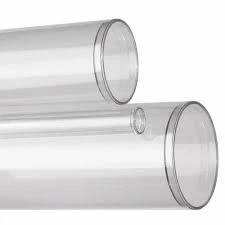Ное . 24, 2024 08:37 Back to list
High-Density Polyethylene Pipe Specifications for 2 Inch Applications and Uses
Understanding 2-inch HDPE Pipe Applications, Benefits, and Considerations
High-Density Polyethylene (HDPE) pipes have become a staple in various industrial applications due to their durability, flexibility, and resistance to corrosion and chemicals. Among the different sizes available, the 2-inch HDPE pipe is particularly popular for both residential and commercial uses. In this article, we will explore the features, benefits, applications, and considerations of 2-inch HDPE pipes.
What is 2-inch HDPE Pipe?
A 2-inch HDPE pipe refers to a pipe made from high-density polyethylene with a nominal diameter of two inches. HDPE is a thermoplastic, meaning it becomes pliable or moldable at elevated temperatures and returns to a solid state upon cooling. This property allows for various manufacturing processes. The 2-inch diameter makes this pipe suitable for numerous applications ranging from water supply and drainage systems to irrigation and industrial piping.
Characteristics of HDPE Pipes
1. Durability HDPE pipes are known for their high strength-to-density ratio. They can withstand substantial pressure, making them ideal for high-pressure applications.
2. Corrosion Resistance Unlike metal pipes, HDPE pipes do not rust or corrode over time. This resistance to chemical and environmental hazards ensures a longer lifespan.
3. Flexibility The flexibility of HDPE allows for easier installation, even in challenging terrains. This characteristic reduces the need for joint fittings, minimizing potential leak points.
4. Lightweight HDPE pipes are considerably lighter than their metal counterparts. This property reduces transportation and installation costs since they are easier to handle and require less labor.
5. Low Friction Coefficient The interior surface of HDPE is smooth, which leads to lower friction loss. This efficiency is essential for plumbing and irrigation systems, promoting better flow rates.
Applications of 2-inch HDPE Pipe
The versatility of 2-inch HDPE pipes makes them suitable for a wide range of applications
1. Water Supply Systems These pipes are commonly used in municipal water distribution networks, ensuring safe and reliable water flow to residential and commercial users.
2. Irrigation In agricultural settings, 2-inch HDPE pipes are ideal for conveying water to crops. Their flexibility and resistance to clogging help in efficient irrigation practices.
2 inch hdpe pipe

3. Drainage Systems The lightweight and flexible nature of HDPE allows for efficient drainage systems in both urban and rural areas, managing stormwater runoff effectively.
4. Sewer Systems Due to their corrosion resistance, HDPE pipes are often used in sewer applications, providing a reliable solution for waste water management.
5. Industrial Uses Industries often require piping for chemical processing and transport. The chemical resistance of HDPE makes it an ideal choice for such applications.
Benefits of Choosing 2-inch HDPE Pipes
- Cost-Effectiveness Although the initial cost of HDPE pipes may be higher than traditional materials, the long lifespan, low maintenance, and reduced installation costs often result in significant savings over time.
- Environmental Impact HDPE is recyclable, reducing waste in landfills. Additionally, the longevity and durability of these pipes contribute to sustainable infrastructure.
- Ease of Installation The lightweight nature of HDPE allows for quicker and less expensive installation processes, minimizing labor costs and project timelines.
Considerations When Using 2-inch HDPE Pipes
Despite the numerous benefits, there are a few considerations to keep in mind
1. Temperature Sensitivity HDPE may become less rigid at elevated temperatures, which can impact its suitability for certain applications. Proper temperature management is essential.
2. Installation Techniques While HDPE pipes can be installed using various methods, ensuring proper welding and jointing techniques is crucial to avoid leaks.
3. Regulatory Compliance Depending on the application, specific regulations may dictate the use of HDPE pipes. It is essential to consult local codes and standards before installation.
Conclusion
The 2-inch HDPE pipe is an excellent choice for various applications due to its durability, flexibility, and resistance to chemical and environmental degradation. Its wide range of applications, from water supply to drainage and industrial processes, highlights its versatility. As with any material, understanding its characteristics, benefits, and installation considerations is vital for maximizing its efficiency and lifespan. With the ongoing push for sustainable building materials, HDPE pipes are poised to play an increasingly vital role in infrastructure development and maintenance.
-
Durable PP Rigid Sheet: Lightweight, Chemical Resistant Solutions
NewsAug.21,2025
-
PVC Grey Sheet for Extraction: Chemical Resistant & Durable
NewsAug.19,2025
-
Durable PVC Pipe Fittings for Plumbing & Irrigation Needs
NewsAug.18,2025
-
HDPE Steel Belt Reinforced Spiral Corrugated Pipe | High Strength
NewsAug.17,2025
-
HDPE Pipe Fittings: Durable, Leak-Proof Solutions
NewsAug.16,2025
-
Premium CPVC Sheet: High-Temp & Chemical Resistant Solutions
NewsAug.15,2025

